🧠 What is Schizophrenia?
Schizophrenia is a serious mental health condition that affects how a person thinks, feels, and behaves. It can cause difficulties in distinguishing reality from imagination, leading to challenges in daily life, work, and relationships. With the right treatment and support, many people with schizophrenia live fulfilling lives.

🌟 Common Symptoms
Hallucinations – hearing voices or seeing things that aren’t there
Delusions – strong beliefs not based in reality
Disorganized thinking – difficulty following conversations or organizing thoughts
Social withdrawal – reduced interest in social activities or relationships
Emotional changes – flat affect or difficulty expressing emotions
💡 Causes and Risk Factors
Schizophrenia does not have a single cause. It often arises from a combination of:
Genetic predisposition
Brain chemistry and structural differences
Environmental stressors (trauma, substance use, social isolation)
🛠️ Treatment Options
Effective treatment usually involves a combination of:
Medication – antipsychotics to reduce symptoms
Therapy – cognitive-behavioral therapy, supportive counseling
Social support – family education, peer groups, community programs
Lifestyle strategies – stress management, healthy routines, avoiding substance use
🤝 How We Can Help
At Psychtree, we provide:
Compassionate psychiatric consultations
Tailored treatment plans
Telepsychiatry sessions for accessible care
Guidance for families to support loved ones
📞 Take the First Step
If you or someone you care about is experiencing symptoms of schizophrenia, reach out today. Early intervention makes a difference.

